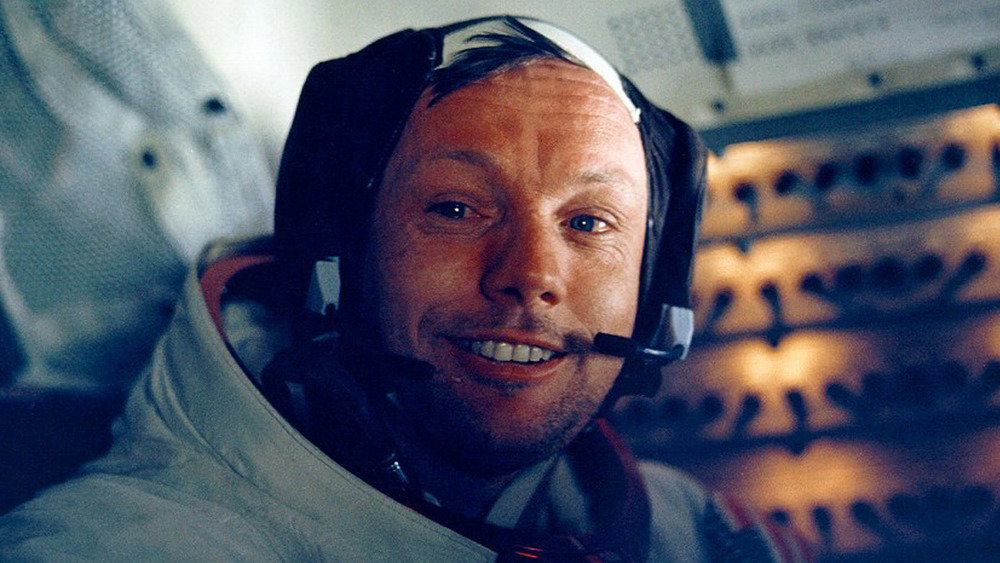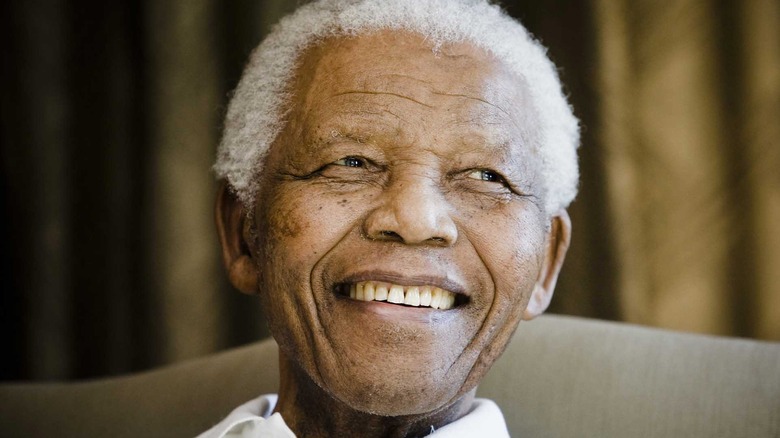The Most Powerful Quotes That Altered History
Words are potent things. They have the power to move us to take heroic actions, start revolutions or wars, but also — thankfully — to end them. British writer Rudyard Kipling famously called them "the most powerful drug used by mankind," according to Cliffs Notes, and history reveals the symbolic truth of his statement. Let's take a look at some of the most powerful quotes that have altered the course of history.
Although there is some debate over Neil Armstrong's exact words when he first set foot on the moon, there's no denying that either way, he changed the world when he spoke them. According to the Los Angeles Times, Armstrong (pictured above) swears he said, "That's one small step for a man...," even though just about all of us quote him as saying "for man." Even audio experts say it's unclear. But cut NASA some slack. It was their first time to the moon.
Thought Co. has some suggestions for history-changing quotes. Among them: "The proletarians have nothing to lose but their chains. They have a world to win. Working men of all countries, unite!" Published in The Communist Manifesto by Karl Marx and Friedrich Engels in 1848, those lines have since inspired revolutionary action across the globe.
A century and a half later, after communism and capitalism clashed famously, leading to the decades-long Cold War in the latter half of the 20th century, President Ronald Reagan spoke another line that changed the course of history: "Mr. Gorbachev, tear down this wall," symbolizing the end of that conflict.
Quotes that altered the course of historical racial conflicts
Throughout history, racial conflicts have occasioned some of the most inspiring and history-altering quotes to have ever been recorded. According to HuffPost, Abraham Lincoln wrote, "If slavery is not wrong, then nothing is wrong." His Emancipation Proclamation may have put the country inexorably on the path to abolishing slavery, but racial tensions between white and Black Americans continue to the present day. A century later, Dr. Martin Luther King Jr. was forced to utter his own historical words when he spoke in 1963: "I have a dream that my four little children will one day live in a nation where they will not be judged by the color of their skin but by the content of their character."
The following year, activist Nelson Mandela would express the same idea in his defense statement when he was on trial for sabotage during the brutal apartheid regime in South Africa: "I have cherished the ideal of a democratic and free society in which all persons live together in harmony and with equal opportunities. It is an ideal which I hope to live for and to achieve. But if needs be, it is an ideal for which I am prepared to die." After uttering those legendary words, he was sentenced to life in prison, where he spent the next 27 years. But when he was freed, he went on to be elected president, the country's first Black head of state.

